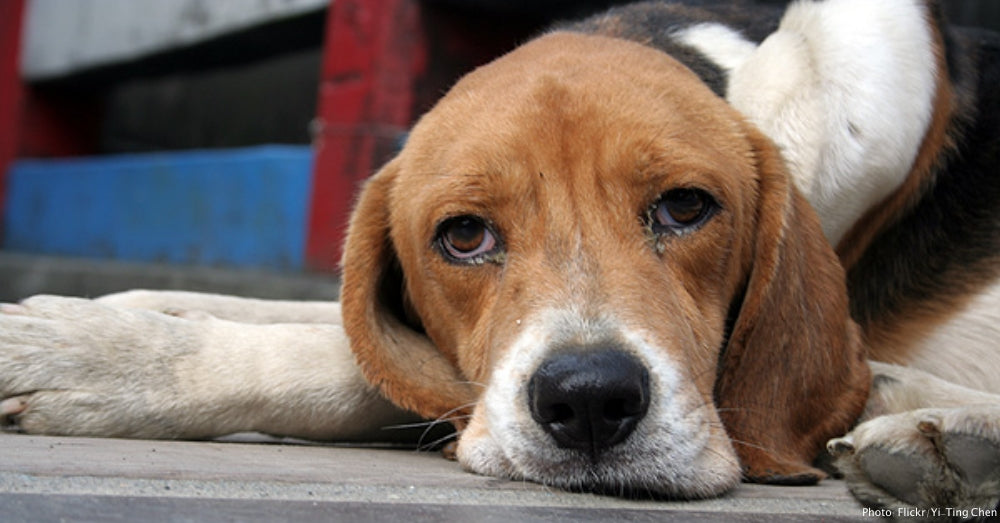Is A Hormonal Imbalance Causing My Dog's Itchy Skin?
J. Swanson
If your dog is itching, it’s natural to wonder if fleas, allergies, or even dry skin could be to blame. But there’s another possible explanation for your dog’s itchiness. Read on for everything you need to know about hormonal imbalances in dogs, which can cause flaky, oily, and itchy skin as our dogs age.
How Can I Tell If My Dog Has A Hormonal Imbalance?
 Photo: Flickr/Donnie Ray Jones
Photo: Flickr/Donnie Ray Jones
Just like humans, dogs undergo hormonal changes throughout their lifetime, and they tend to wear their shifting hormones on their skin. Raw, flaky, discolored, and itchy skin could signal a hormone imbalance. Studies have also suggested a link between hormone disorders in dogs and canine anxiety (which also makes dogs itch).
Signs of hormone imbalances in dogs:
What Causes Hormone Imbalances In Dogs?
Older dogs are more likely to suffer from both hypothyroidism and Cushing's Syndrome, which are two leading hormone disorders in dogs. Hormonal imbalances can also occur after dogs are neutered or spayed, which can leave female dogs low on estrogen. Failing to neuter dogs also opens the door to hormonal imbalances caused by excess testosterone. Many hormone disorders (particularly hypothyroidism) begin to affect dogs in middle age.
What Is Hypothyroidism In Dogs?
Hypothyroidism, which is caused by an under-active or malfunctioning thyroid, is the most common hormone disorder in dogs. This low thyroid condition affects all dog breeds, but hypothyroidism is most common among medium to large dogs with at least five years of age.
What dog breeds are prone to hypothyroidism?
What Is Cushing’s Syndrome In Dogs?
Cushing’s Syndrome (aka Cushing’s Disease) is a hormone imbalance that occurs when (usually middle-aged) dogs have too much cortisol in their system. Although less common than hypothyroidism in dogs, Cushing’s Disease impacts your pup's ability to regulate stress, weight, blood sugar, infections. Like other hormone disorders, Cushing's Disease also causes skin problems and itching.
How Can I Tell If My Dog Has A Hormonal Imbalance?
 Photo: Flickr/Yi-Ting Chen
Photo: Flickr/Yi-Ting Chen
Make an appointment with your vet if you suspect your dog is suffering from a hormonal imbalance. Your veterinarian will perform a blood test to check your dog’s thyroid and other hormone levels, and then prescribe treatment as appropriate. Some hormone imbalances (including thyroid disorders) in dogs can’t be cured, but they can be easily managed with medication. If your dog is diagnosed with hypothyroidism, your vet may prescribe Thryo Tabs Canine, an FDA-approved replacement therapy for hypothyroidism in dogs.
Conclusion
Hormone imbalances in dogs can lead to serious health complications (including dog anxiety) if left untreated, so taking your dog to the vet if you're not sure what's causing his itchy skin.

 Photo:
Photo:  Photo:
Photo:  Photo:
Photo: 
